
Make for a Brighter Future
11-28-2021Pastoral ReflectionsRev. Brian F. ManningThis weekend we begin a new church religious year. Our year is based upon telling the story of Jesus Christ Our Savior. In a sense, we begin at the beginning and end at the end when everything has been said. To begin telling the story we need to back up a bit before the actual birth at Bethlehem. Thus, we have four weeks called Advent to help us get to the story of Christ's birth and its meaning in our lives. The readings of this weekend help us by focusing us on the future. They, in fact, invite us to rejoice, even in the face of our times and situations, because we know that God will not fail us. They strongly encourage us to plan for the future, because we believe that God will not dash our hopes. They greatly encourage us to strive and work for the promise of a better tomorrow, because we are absolutely convinced that on this very day and every day God is fulfilling His promises and acting on our behalf. We believe that the "Son of Man" is coming and has come. Our great hope and the way we live can make for a brighter future for all who seek him.
READ MORE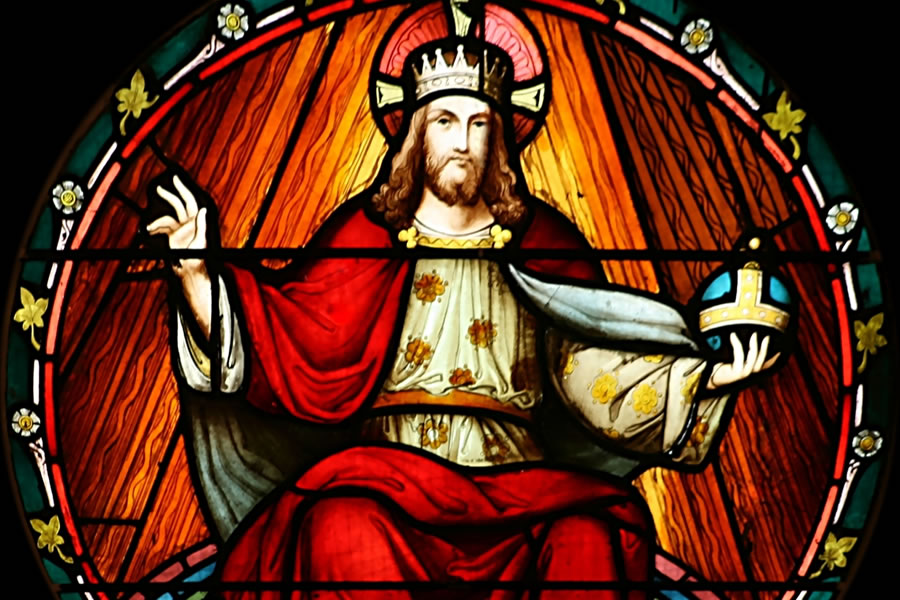
Do What He Asked Us To Do
11-21-2021Pastoral ReflectionsRev. Brian F. ManningOur scripture readings are thematically related to the theological concept of the life-pact between God and ourselves that is verified by Jesus' sacrifice on the cross. We know from the scriptures that God initiates the covenant and invites us to enter into it and to complete it. We learn that what our "high priest" has begun, we are to continue through celebration and service.
When Jesus told his friends to remember him by breaking bread and drinking wine, he did not mean just to have "good thoughts" about him. In our religious tradition all the way back through the earliest of times in the Old Testament, to remember is a very special action. To remember means to make events or happenings from the past come alive now in this very present.
READ MORE
God's Reign is Already Begun
11-14-2021Pastoral ReflectionsRev. Brian F. ManningWe are now drawing close to the end of our Church's religious and liturgical year. Thus our readings this weekend focus on the end times of our world, which is the return of Jesus Christ in his Second Coming. This usually is not a topic we think about or talk about. Some do, however and they usually make it sound scary and frightening. Our readings today approach all of this differently, these readings call us to faith and draw on our faith to help us face the end times without trepidation.
READ MORE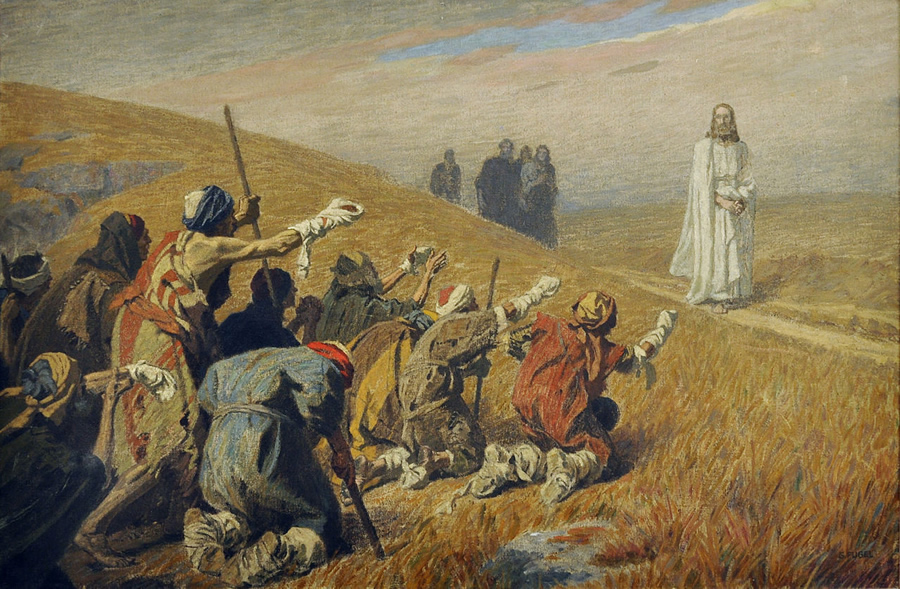
Giving to God and His Work
11-07-2021Pastoral ReflectionsRev. Brian F. ManningWe witness the kindness and generosity of the poor in the two different widows in the first reading and the Gospel reading this weekend. In reading from the first Book of Kings, we learn about a very dire time of famine in Israel. The prophet Elijah in his travels met a pagan widow. We need to remember that Elijah had been told by God that there would be a great drought and a widowed woman would appear to help him. When Elijah saw the woman, he asked for a drink of water. Asking for a cup of water in a desert climate and place was quite normal. He, however, asked for a second cup He even pressed further before she had even answered and asked for some bread. This clearly poor widow had so little to give him; in fact, she did not even have any bread on hand. She was planning to bake the last of her supplies of flour and oil. In a dramatic way Elijah gave her a promise that if she gave what she had, she and her family would not go hungry during this terrible drought.
READ MORE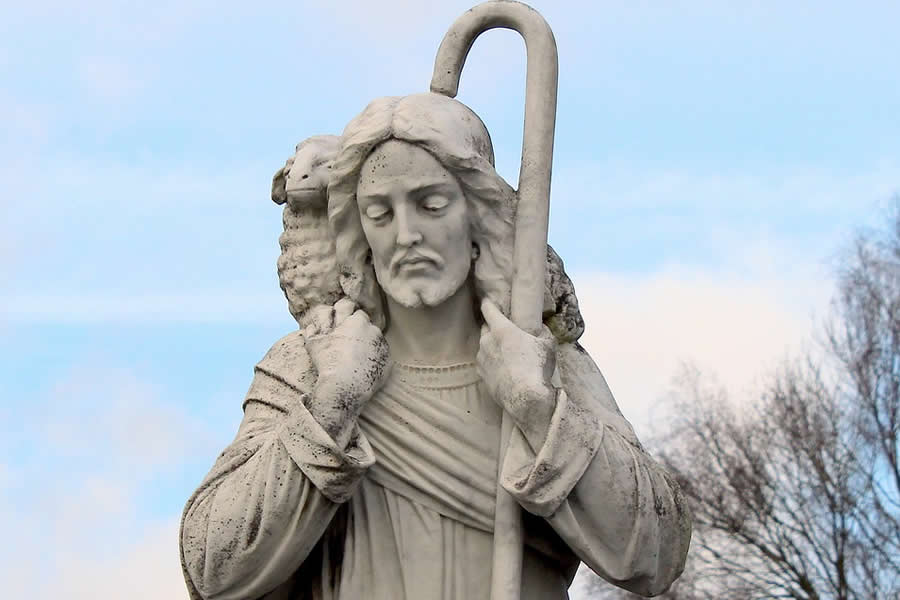
In His Greatness He Tells Us How to Live Our Daily Lives
10-31-2021Pastoral ReflectionsRev. Brian F. ManningMost of us have experienced at least one painful or scary time in our lives. This can be the sudden and tragic death of a spouse, perhaps even the loss of a child. A scary moment can be the loss of a sole income for a family. At these times we never really know what to say. In fact there is very little we can do for the suffering person, but we do know that we have to be there, after all that is what friends do. Friends are people you can turn to in times of need.
READ MORE
Faith Comes Before Seeing
10-24-2021Pastoral ReflectionsRev. Brian F. ManningThe prophecy of Jeremiah found in the first reading was selected because it provides an initial insight into our Gospel passage. Clearly God's compassion, described in the first reading prepares us to learn about the compassion of Jesus for the blind, desperate Bartimaeus.
From the first reading we realize that people who are bound and captured and also exiled in a strange land always pay close attention to their captors and oppressors. They can sense the slightest nuance of change, and now in this passage they can sense change. They know that their captors are now threatened by others and are becoming weaker. The once powerful Assyrians are losing their power as the Babylonians and Medes begin to overwhelm them. The Assyrians seem to be concluding that these exiled Jewish captives are not worth the time and effort and so they should send these foreigners back home.
READ MORE
Service to Others Given From a Loving Heart
10-17-2021Pastoral ReflectionsRev. Brian F. ManningIf you reflect upon the first and second reading at Mass this weekend, you may conclude that the readings balance each other and offer us some kind of equilibrium and strength for us to continue in our journey as disciples of the Lord. Most people find the first few words of the first reading absolutely shocking as Isaiah writes: "The Lord was pleased to crush him in infirmity." How can this please God? How can people being crushed please God? How are we to understand this? Most people conclude that God seems to allow the suffering of the innocent to go on and on, with no intervention or relief.
READ MORE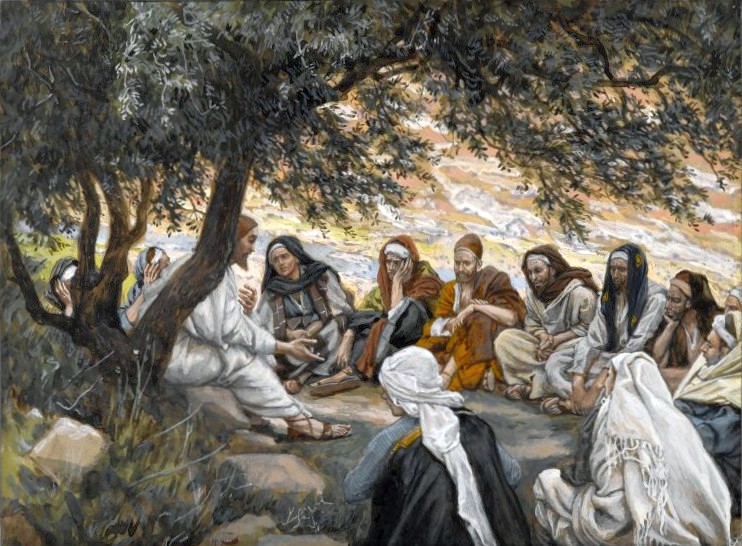
Try and Do Our Best
10-10-2021Pastoral ReflectionsRev. Brian F. ManningOur Gospel passage this weekend is about Jesus and the Young Man. One should notice that the young man has self-confidence and is also generous in spirit, and in addition, is vibrant in his approach to life. Jesus obviously saw the young man and wanted to speak with him. We realize, of course, that the young man's request was quite a legitimate question to ask Jesus. Perhaps the young fellow was a little out of line by the salutation of "Good Master" for Jesus certainly corrected that. He reminds the young man that God alone is good, and thus in a sense any good we do is because of God. Yet we must hear the entire story for everything to fit together properly.
READ MORE
Sacrament of Matrimony
10-03-2021Pastoral ReflectionsRev. Brian F. ManningA bishop, priest, deacon, or lay preacher who is preaching this weekend can certainly stand tall on the preaching box and rant about marriage in this present age and in these times. It is easy to focus a talk on pre-marital sex, divorce or same sex marriage instead of attempting to lift up marriage and encourage people to see the beauty and wonder of marriage. Religious preachers can be quite lazy and often go about bashing and beating people up and do not put thought and effort about lifting up the Word of God and his gifts to us. We all know it is easier to throw around nasty names and criticize without understanding anything than it is to think decently and thoughtfully about something that is important. Oftentimes this bashing and destroying is a substitute for what it is really going on. Certainly, the Gospel tells us this in plain and clear terms.
READ MORE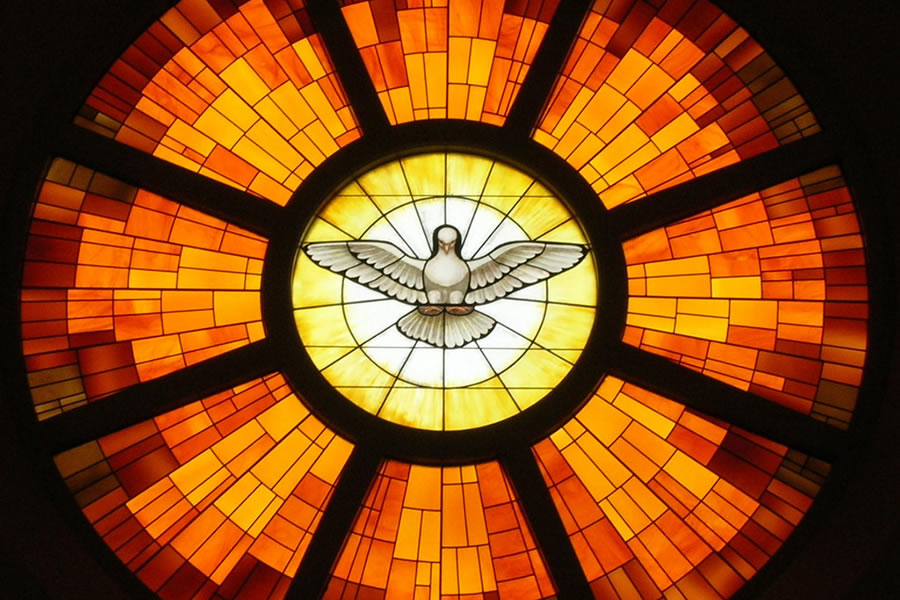
God's Voice Comes Forth
09-26-2021Pastoral ReflectionsRev. Brian F. ManningFrom reading the scriptures of the Old Testament we certainly find Moses a surprising person and leader in many ways. We know that he did not want the role that Yahweh gave him. He also required help from Aaron to manage everything. Yahweh also gave Moses 70 Elders who could prophesize and then it was discovered there were two more. Moses was quite happy about these extra Elders. He saw all these peoples as special gifts from God. Some of the Jews were mad that there were these two, but not Moses. Jesus also had the same issue in the Gospel passage we hear today at Mass. There were some people who did not know Jesus personally who worked miracles in His name. Jesus was much like Moses in his response. If one can work miracles in His name, then you cannot be against Him. Jesus did not mind that there were people who were not His chosen few. They had caught the power of the Holy Spirit and were acting for God.
READ MORE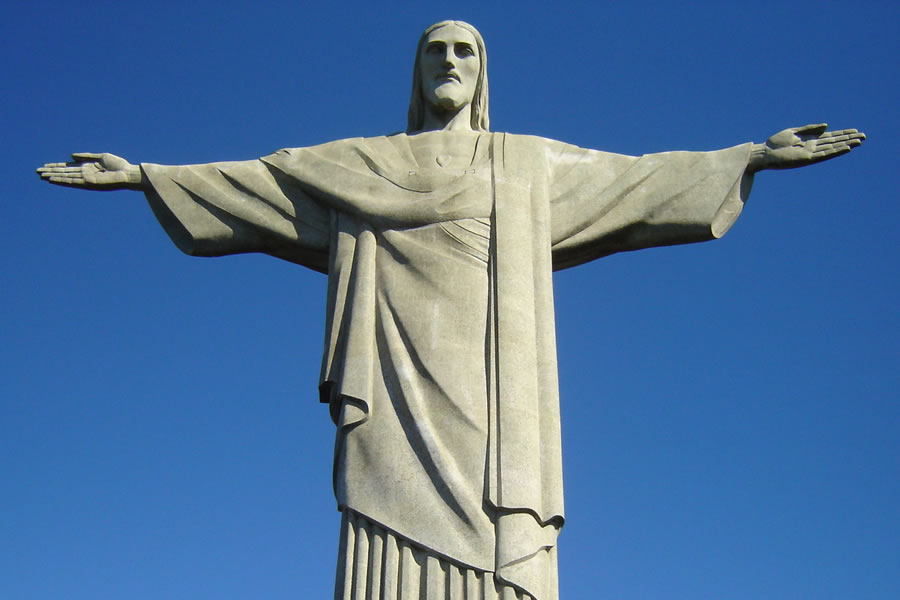
Live His Way of Life
09-19-2021Pastoral ReflectionsRev. Brian F. ManningWe often talk about "success" in our country. If you listen to some talking heads on the continuous news channels, it appears that success is usually tied up with wealth and money. In fact, on these programs only the rich are quoted or cited most often. This week's scriptures, in particular the Gospel are about what Jesus believed "success" to be.
Our first reading, which is from the Book of Wisdom, focuses our minds on the idea of the trials that "just one" must endure. The people in this story deeply resent this person who dares point out their mistakes. They ask out loud if the "just one" could stand for God and against threats of condemnation and death. Many people through the centuries have interpreted this passage as a prediction of the Passion of Our Lord, which Jesus himself tells us about in the Gospel of today. This is the second time that Jesus has predicted His Passion.
READ MORE
Care For Our Brothers and Sisters
09-12-2021Pastoral ReflectionsRev. Brian F. ManningThis weekend at our Masses, the theme of each of the three readings is all about good discipleship. Our first reading, a passage from the Prophet Isaiah addresses the theme of the "Suffering Servant". We know to interpret the servant as Israel because the pain caused in the servant is a direct result of his faith. He is insulted because of his faith but note that he never wavers or steps back. His life was just because he set his face against these bad people with a face "like flint."
In our second reading the writer James continues the theme of discipleship. He writes that it is not enough to state our beliefs and faith, we must do more. Good intentions and talking are never enough. If people find their neighbors hungry and without enough clothing, it is not enough to wish them well, but we need to act on our wishes for them. Saint James always wants us to pray, but sometimes he knows that prayers alone are not enough. We must act on our own prayers or else God's work will not be done.
READ MORE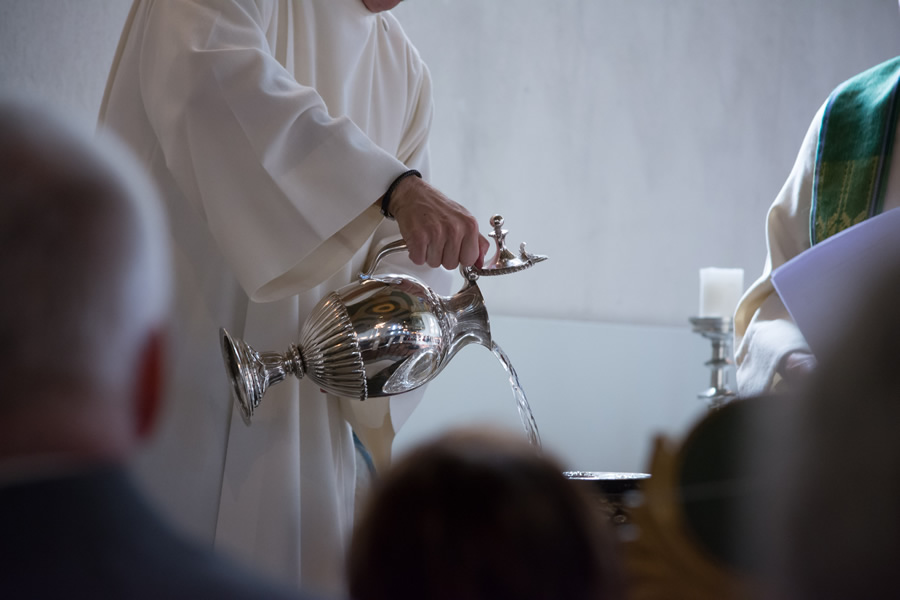
By our Baptism Call
09-05-2021Pastoral ReflectionsRev. Brian F. ManningIn this week's Old Testament passage, the prophet Isaiah announces that the present mood of melancholy in Israel will turn to its opposite. He uses images to make this absolutely clear for the blind will see, the deaf will hear, the one who cannot move will win foot races, the one who is without words will be full of words—songs even. The very land itself will come alive: sands will be watered, deserts will flower. This is quite the prophetic statement by Isaiah.
READ MORE